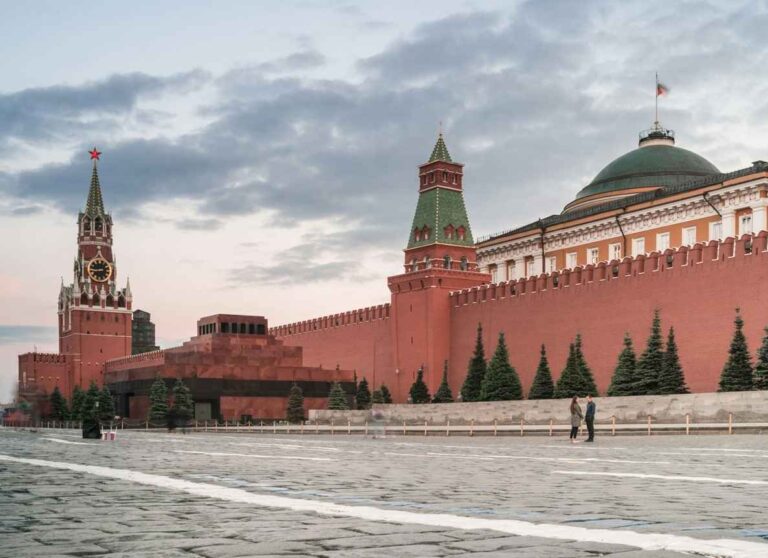“Putin must go,” said the President of the United States, Joe Biden, two years ago, a few months after Russia’s invasion of Ukraine. It was an unexpected sentence, which triggered a diplomatic incident throughout the world and the Sherpas in Washington had to patch it up to avoid a disaster. However, many took it like the concrete Western commitment to eliminate the despot of the Kremlin.
And instead, like it or not, Vladimir Putin, 71 years old, absolute ruler of Russian politics for 25 years, engaged in a tragic war that has already cost the Russians tens of thousands of deaths and the most sanctioned economy in the world, will win a fifth term in the Kremlin and seems to have his country under control as never before in history.
Table of Contents
Putin’s undisputed dominion
He was elected for two terms from 2000 to 2008, when the term of office was four years, and now that the presidency lasts six, he has been in office for two more consecutive terms, almost 12 years.
In the interlude from 2008 to 2012, during the presidency of Dmitry Medvedev, who then seemed the moderate between the two and instead now makes murderous speeches against the Ukrainians and threatens Europe with nuclear power, Putin had been prime minister.
Reported several times by the Western press as being on the verge of death or suffering from dementia, the authoritarian leader that Biden wanted to see ousted by the Russians will most likely outlive him politically. At least until 2030.
Not that moments of tension were lacking for the wizard of the Kremlin: the anti-war protests in the first days of the war, in Moscow and in the big cities. The tumultuous effects of the sanctions, which forced the Russian economy to reprogram itself, looking towards China and autarky.
Also, the original revolt of the commander of the private Wagner brigade, Evgenji Prigozhin, last June, with his grotesque march towards Moscow. And, in the weeks leading up to the vote, thousands of people gathered at impromptu memorials for Alexey Navalny, Russia’s most prominent opposition leader, who died suddenly in an Arctic penal colony.
The other candidates
In elections with a foregone conclusion, Putin will have to face the communist Nikolai Kharitonov, 75 years old, an old acquaintance of the Duma, the Russian parliament, since 1993. He ran for the presidency in 2004, obtaining second place with around 13% of votes.
In his election platform, Kharitonov proposes to lower the retirement age, increase pensions and support large families, counting on the elderly and conservative electorate that traditionally supports the Communist Party. According to polls, he has around 4% support, and has promised not to campaign against Putin, following a tradition of the Russian communists that has lasted for 20 years.
Another candidate is the leader of a party called the Liberal Democrats, Leonid Slutsky. But in reality it is far-right nationalist. He has a consensus of around 3%, is involved in several scandals and was sanctioned by the West in 2014 for his support for the annexation of Crimea. In 2018, he was accused of sexual harassment of journalists and some media even compared him to a “Russian Harvey Weinstein”. About the war? Even more hawkish than Putin.
Vladislav Davankov, of the New People party, is seen as an alternative for anti-war voters after the exclusion of other pro-peace candidates. He is a former entrepreneur and deputy chairman of the State Duma. He proposes negotiations with Ukraine, freedom of the press and normalization of relations with the West.
The vote in the occupied territories
Much to the despair of Ukrainians, presidential elections will also take place in what Russia calls its new territories, once controlled by Kyiv and now in the process of Russification. With cities like Mariupol, on the Black Sea, first destroyed by Russian bombs and then rebuilt.
For the first time it will be possible to vote remotely, online, even from Crimea occupied in 2014. Three million Russians have registered to do so, despite fears of voting control by the authorities. The participation rate in 2018 was 67.5%.
Are the Russian elections a farce?
In 2020, Putin had approved a constitutional reform precisely to be able to run again, with the aim of remaining president until 2036.
It was the latest development of a plan, feared among others by Navalny, to essentially make himself president for life. in 2036 Putin will be 83 years old.
Yulia Navalnaya, Navalny’s widow, also strongly supported by the West, called for a significant protest against Putin on election day. But for the moment Russia remains unopposed.
Igor Girkin, the infamous former commander of Russian nationalist militias, recently released after four years in prison, dismissed the upcoming March elections as a “farce” already decided and made a dire prophecy about the war, saying that the Russian army is put worse than it seems.
If Putin actually manages to get elected president two more times, Putin will surpass Soviet dictator Josip Stalin and become the record holder for remaining in power in Russia.
Read also: Russia, who will challenge Putin in the March elections?












